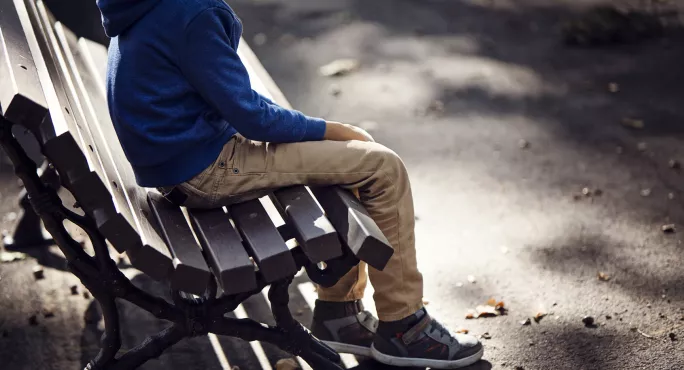Picture yourself at 11 years old, walking into class for morning registration.
There are two seats available: one next to a friend, the other one next to a kid who you know to be equally kind and funny.
The only issue is, the second child isn’t alone. Ever.
Quick read: 3 things about SEND you only learn as a Sendco
Quick listen: How to support pupils with eating disorders
Want to know more? Three psychology tips to improve pupil behaviour
They have a learning support assistant (LSA), who is inadvertently blocking the possibility of social interaction.
I have often been a witness to this during my time as a carer; children with LSAs frequently end up spending lunchtime with them, rather than being sociable with other children.
There is not enough of an effort made to build the social skills and encourage the inclusion of children with special educational needs and disabilities (SEND). Independence seems to be either expected before it has developed or not encouraged at all, and so substituted with an adult shadow.
There’s no denying that LSAs do an important job. But we need to consider the way we balance supporting teaching and promoting independence. Could assistants, in some cases, be holding back children’s social self-sufficiency?
Social competence
A 2003 report on the deployment of support staff concluded that pupils were not being supported in developing social competence, which could reduce their ability to participate in the learning environment.
The Deployment and Impact of Support Staff Project, which investigated the roles and standards of teaching/learning support assistants, found that LSAs’ routine deployment to those pupils who required the most assistance resulted in those pupils becoming cut off from the curriculum and the teacher.
So, how can we help? An investigation into the effectiveness of a peer buddy system to increase interaction between students with SEND and their peers proposes simple solutions, such as pairing with more-able students.
Likewise, there could be value in LSAs’ closeness to students being replaced with them staying in a known spot in the nearby vicinity, to be a place of comfort if needed, rather than a continuous source of comfort.
Life lessons
Schools may be designed as learning environments, but becoming able to socialise is just as important as any academic lesson.
And this is especially vital as our children with SEND prepare for adulthood; more than half of disabled people report feeling lonely.
The rise of emotional literacy support assistants (ELSAs) is another positive step; these are LSAs specially trained in promoting social skills, building self-esteem, understanding emotions and improving confidence and empathy in social settings.
The approach was designed by educational psychologist Sheila Burton, to address the need to strike a balance between providing consistent and proximate support, and allowing individuals to form friendship groups.
A 2015 report on the model found that 75 per cent of respondents felt that ELSAs had had a positive impact on the children and general practice within the school.
Trapped in the comfort zone
Ultimately, the child in the class isn’t being approached because they have not been equipped with the ability to break free from their comfort zone.
The rejection they feel cannot be addressed without breaking down the barriers that, in some cases, our support systems in schools are building up.
Children should be valued as experts in their own identity-building process, through the formation of inclusive and long-term friendships.
At 11 years old, having a disability can feel so detrimental to your ability to communicate and socialise. This does not have to be the case.
Lydia Tyler is a sixth-form student and a part-time carer and personal assistant for children with disabilities

